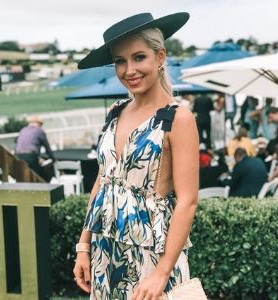In conversation with Black Grace's Neil Ieremia
As Aotearoa’s premier contemporary dance company Black Grace gears up for a year of innovation and expansion, director Neil Ieremia chats to Remix about the mental and physical leaps required to shake off the group’s humble beginnings and claim its place amongst the best dance companies in the world.
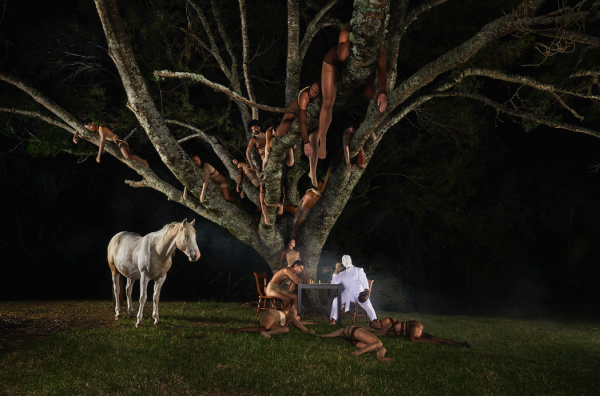
Growing up poor in the suburbs of Porirua, with a mother who would take on extra jobs to pay the subs of her ultra-competitive, sports mad children, Neil Ieremia has work ethic burned into his brain – or make that his feet. To the amusement – but never discouragement – of his sports obsessed family, Ieremia began dancing at age 19, where he immediately set a goal for himself. By the age of 30, he wanted his own dance company, a BMW and a house. That he achieved all of these things within his set timeline tells you the first thing you need to know about Neil.
The second thing to know about Neil is that he has been the director of Black Grace since he conceived of it in 1994, and he’s never subscribed to the “starving artist mentality”. From day one, he set out to make it a viable business, “Otherwise what’s the point?” he says. “I’m tired of seeing creatives selling themselves short, diminishing their contributions to society. Culture has value. Culture and commerce is something we don’t really like to discuss in Aotearoa, we feel uncomfortable talking about the two in the same sentence, but Black Grace is a business like any other.”
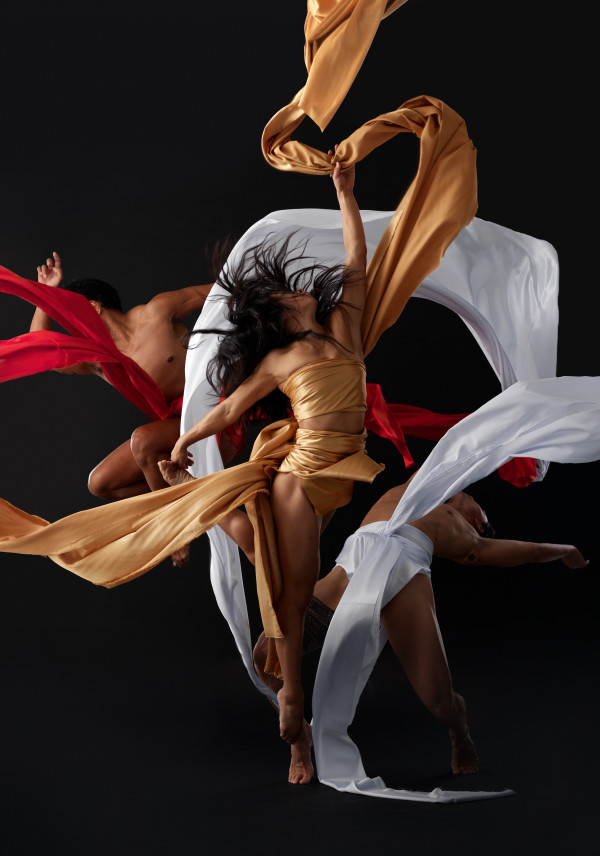
It’s an attitude that he says is embraced on a much more pragmatic level overseas, specifically in the USA where Black Grace has toured regularly and gained an impressive audience of die- hard fans. Impressive and very important, as far as the Black Grace business model is concerned. “These international tours basically fund our NZ tours,” says Ieremia. “Simply because of the scale of those audiences and how the whole touring operation over there is so streamlined. And US audiences are very keen to come out and fill those seats. There’s such an appreciation of culture and dance over there and it really fills our cup, metaphorically and literally, so then we can come home and put on the same show for New Zealand audiences, essentially at a loss.”
It’s a business model that keeps Neil and the team constantly brainstorming new, more sustainable ways to enable local audiences to experience the beauty of Black Grace. Unsurprisingly, Covid tabled the possibility of a digital work, not only as a means to keep the company literally moving during lockdowns, but as a way to further democratise the art form. Subsequently, in October 2022, the first of a series of large scale digital installations will be unveiled at Auckland’s Aotea Square. Millions of dollars in the making, it’s the company’s largest investment ever, but the upfront costs of creating the infrastructure and accumulating the digital expertise to execute such an ambitious, immersive work will be offset during subsequent phases, when the whole project hits the road. Neil’s dream is to have a rotation of digital performances taking place at up to five sites around the globe at any one time, from Time’s Square in New York to Invercargill.
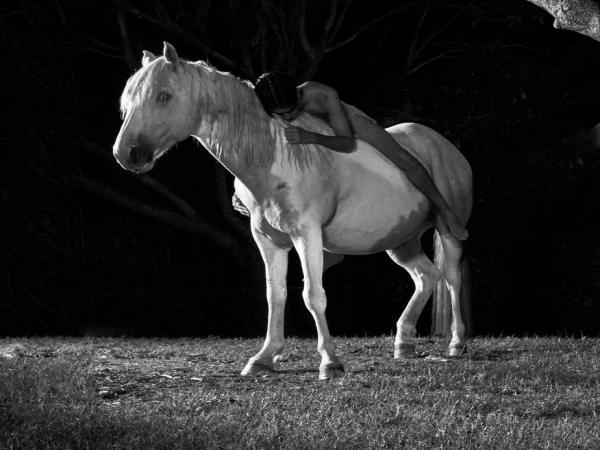
Free to the public during the day and ticketed at night, Neil says the digital, outdoor public art medium allows for those who wouldn’t be able to find room in the budget for a theatre ticket an opportunity to connect to performances that might be especially close to home. He describes an interactive percussion piece, Relentless, originally performed by Black Grace in 1995 and inspired by a local story of child abuse. “But you don't have to understand the context or the culture to appreciate the dance and the performance and get a sense of the story,” he says, pointing towards the universality of Black Grace and the work it produces.
And it is ‘work’, according to Neil, not ‘content’. “I’ll be in these meetings with these bigwigs in New York, the kind of guys that own every billboard in Times Square, and they’re talking about getting our content on the screens which is just a mindblowing thought and very exciting. But do we have to call it content? I think it diminishes what it is, which is work. Work is something that has required thought and care. Content is just something that is produced to fill a space. It’s arbitrary, it’s not thoughtful or careful, and it’s passive.”
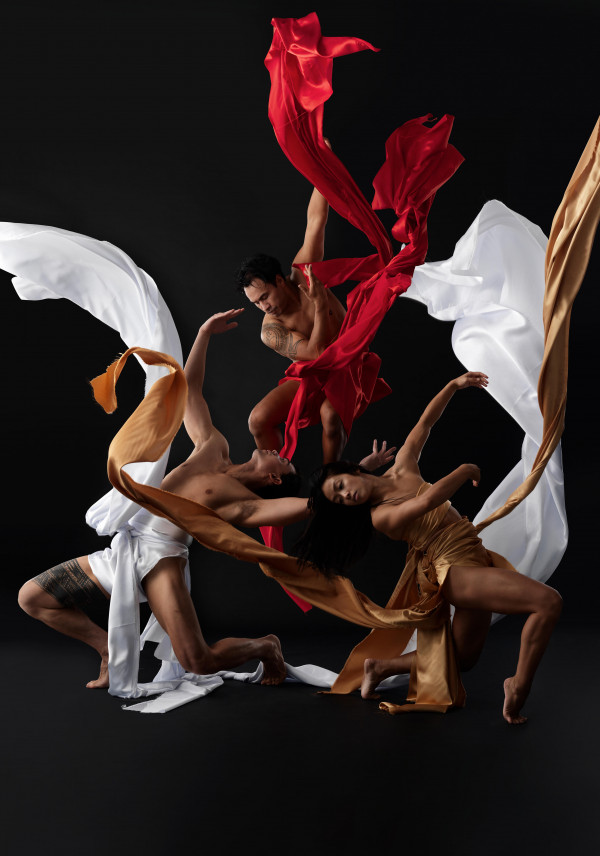
Neil’s final goal for the foreseeable is launching his Black Grace Training Academy – an idea decades in the making that stems from a desperate need for well-trained dance graduates to feed directly into the company. “It’s been years, and we’re just not seeing the calibre coming through. They come out of uni or other dance programmes and they don't have the fundamental skills, they don’t have knowledge of the dance forms. And they don't have the attitude, they don't want to learn more. I know it makes me sound all curmudgeonly but there’s a lack of respect and a lack of discipline and as my mum would say, “Sometimes they do need a jandal!”
Recalling the precision with which a jandal would come flying at his head if he was caught misbehaving in church, it’s clear Neil’s mum, her tough love and her personal sacrifices have influenced him as an artist and a leader. Remembering how his mother cleaned houses when money was tight, he explains that one of the non-negotiables of touring with Black Grace is that everyone makes their own bed. “Those are the rules. Keep your room spic and span, the housekeepers aren’t there to clean up your mess. And leave all your change on the table for them when you go. That’s someone’s mum. That could be your mum. Treat her with respect.”
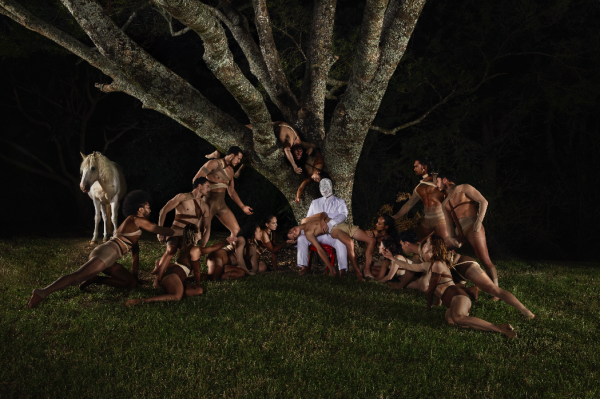
Black Grace’s season of Life – O Le Olaga is touring the USA in July and August and coming to Auckland on 4th September, Wellington on 6th September and Christchurch on 10th September. Book your tickets now.
Artistic Direction: Neil Ieremia
Photography: Toaki Okano
Styling: Sammy Salsa
Make Up: Kiekie
Hair: Kat Derham, Stephen Marr



